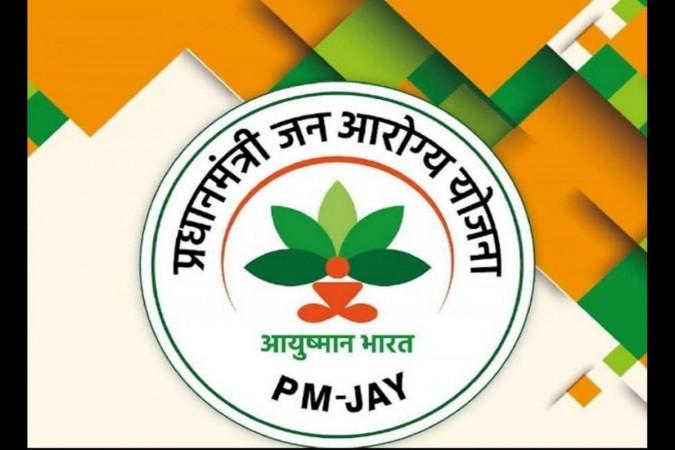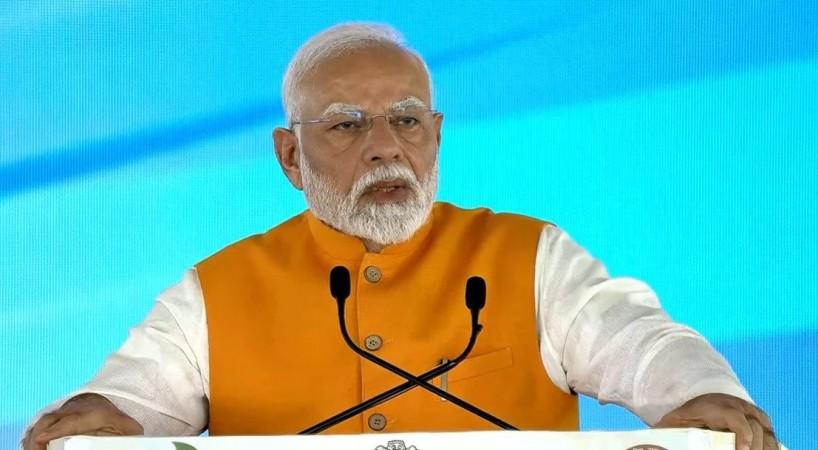
Indian government has launched the Ayushman Vaya Vandana Card, a scheme that provides free hospital treatment to all senior citizens aged 70 and above. The initiative, announced by Prime Minister Narendra Modi, is an expansion of the existing AB PM-JAY family scheme and is set to benefit around 4.5 crore families, including 6 crore senior citizens. The Ayushman Vaya Vandana Card is a universal card, with no income restrictions. Whether the cardholder is from a poor, middle-class, or upper-class background, they are entitled to free treatment in hospitals.
The scheme has been rolled out at a cost of Rs. 3,437 crores, and it is expected to reduce the burden of healthcare not only for the elderly but their families as well. The Union Cabinet first approved the expansion of the AB PM-JAY to provide health coverage to all senior citizens aged 70 and above in September. This move comes as India's elderly population is projected to double by 2050, increasing the demand for geriatric care. By 2050, one in five people in India will be elderly. The health policy presented by Prime Minister Narendra Modi has two special features. The first characteristic is that it is holistic; it takes care of all aspects of preventive, promotional, curative, rehabilitative, and palliative care. The second feature is the effort made in bringing all the genres together under one roof, a move hailed by Union Minister of Health and Family Welfare, Shri Jagat Prakash Nadda.

Industry experts have also praised the initiative. Abhay Soi, President, NATHEALTH and Chairman and Managing Director, Max Healthcare Institute, said, "This initiative marks a pivotal step in elder care, extending support to a segment with a high disease burden, pressing need for enhanced healthcare access and reinforcing the nation's position as a leader in inclusive healthcare." The scheme will notably benefit chronic care patients and will help reduce the burden of healthcare not only for the elderly but their families as well. Prateep Chakraborty, COO, HelpAge India, added, "Data shows that just about 20 per cent are covered by any health insurance with further variation across socio-economic categories, even as the majority of elderly face one or more chronic diseases and with increasing age, the challenges relating to activities of daily living. "The Ayushman Bharat scheme has been a step towards achieving universal healthcare in India. Since its inception, it has provided free hospital treatment to millions of Indians, reducing their out-of-pocket expenditure by around Rs 1 lakh crore. The recent expansion to include all citizens above 70 years of age is set to add about 2 crore families and 3 crore individuals to the scheme.
However, the implementation of the scheme has not been without challenges. Delhi and West Bengal have declined to implement the scheme since 2019, citing the 40% cost share and a preference for renaming it after the Chief Minister. Odisha initially refused to join under BJD, but the stance changed under the newly-formed BJP government. Despite these challenges, the Ayushman Bharat scheme has been successful in many states. Among the top-performing states in Ayushman Bharat are Tamil Nadu, Karnataka, Rajasthan, and Kerala, three of which are opposition-ruled, excelling in hospital admissions.Ayushman Vaya Vandana Card achieving universal healthcare in India. By providing free hospital treatment to all senior citizens aged 70 and above, the government is ensuring that healthcare is accessible to all, regardless of their income. It is a step in the right direction towards achieving universal healthcare in India. The initiative is a testament to the government's commitment to the health and well-being of its citizens, particularly the elderly, who are often the most vulnerable to health issues.

















